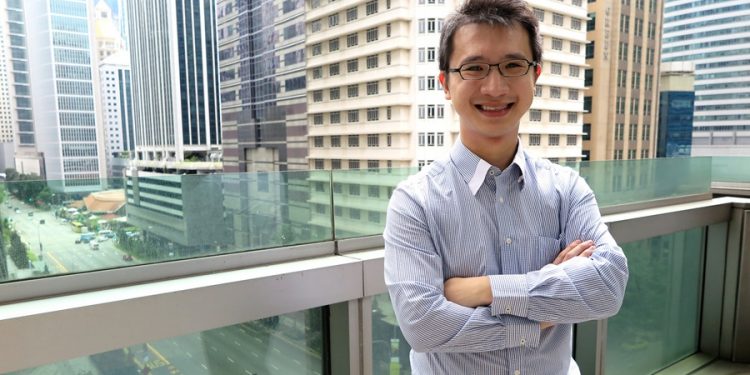“Think of blockchain as a global storage facility that is on the Internet where you can store information and it cannot be deleted. You may make changes to the information and update it, but it cannot be shut down,” described Anson Zeal, chairman of the Association of Cryptocurrency Enterprises and Startups (ACCESS).
Leveraging the internet, blockchain is a new technology that is open-sourced, said Anson. Elaborating, he says that information can be added anytime and anywhere by anyone with the rights to it. Every update is also traceable and verifiable. Blockchain’s decentralised nature also prevents data theft through hacking of one location while its transaction history offers greater transparency.

Common Uses
Arguably, the most widely known use of blockchain is in the creation of cryptocurrencies like Bitcoin.
“Each bit of data is unique and cannot be duplicated, and there will be records of each transaction made. If I were to transfer it to you, and because I can put a price to it that is accepted by another party, it becomes a medium of exchange that feels like currency. Blockchain is the technology that enables something to become a cryptocurrency,” explained Anson.
While cryptocurrencies are worth an estimated $780 billion in today’s market, Anson said that this is only the tip of the iceberg for what blockchain can do. Transactions can be broadened to include non-monetary data transfers. For instance, numerous applications have been developed using blockchain for cryptocurrencies to represent assets such as stocks, properties and contracts.
Another area of use is in identification. Licenses, academic certificates and other official documents can be produced or archived using the technology.
Work Opportunities
As a testament to its potential, blockchain technology has been identified as one of the strategies driving industry transformation in Singapore’s Financial Services sector by the Monetary Authority of Singapore. As a result of this Industry Transformation Map, it is also estimated that there will be 4,000 jobs created annually; of which 1,000 are in the realm of financial technology, and 3,000 in financial services.
Sharing his insights, Anson said that some of these new roles will include trustware engineers, quality assurance professionals, smart contract auditors, compliance and user experience designers. Anson added that as cryptography (the use of digital keys to secure information) is a backbone of blockchain technology, knowledge and an understanding of cybersecurity is a given.
“Blockchain technology is based on trust, so developers have to be more responsible. The concepts have to be thought through carefully before it gets coded into the system. Responsibility and critical thinking is needed much more than the actual coding… Programming the blockchain does not mean you just know how to programme the back-end of an app because blockchain is a platform, like the Internet. These back-end programmers will need to understand how the platform works. You will need to understand the technology.
“Quality assurance will become big as well – this is not just someone who knows how to look at the quality assurance on the user experience, but also how to audit the contracts (computer protocols that determine actions and transactions), and the code behind the blockchain,” explained Anson.

Skills Needed
Given how new blockchain is as a technology, Anson highlighted a mismatch in available opportunities and lack of skills. He added that because it is so new and evolving rapidly, blockchain professionals have to possess an innate curiosity to check out new developments and plug their own skills gaps as there isn’t any formal syllabus available in today’s market.
“If someone is curious, they would already have picked up the necessary skills through community learning or YouTube videos – which is the best in my opinion,” said Anson.
Where useful skills are concerned, Anson shared how a knowledge of the programming language Python will be useful as it is widely used for data analysis and website development.
People skills are another area of focus, particularly in an online community with wide audiences. Anson believes that having the skills to manage and engage with audiences online will be a crucial skill that is increasingly more important than regular SEO (search engine optimisation) marketing.
Good To Know
For more resources on the digital transformation in our economy and blockchain technology, click the following links:
SUSS Fintech and Blockchain Programming Workshops
With additional reporting by Avelyn Ng

